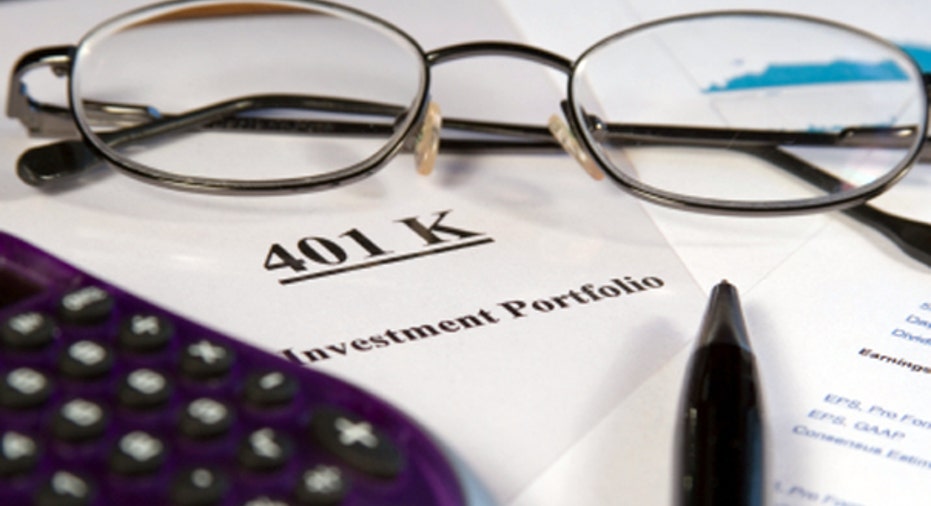If Layoff Looms, Don't Touch Your 401(k) Plan Money

Dear New Frugal You,
My wife and I have about $30,000 in credit card debt. There is a good chance I may be laid off soon, since my company just got bought out. Should I take out a loan against my 401(k) to pay off the debt? I just turned 50 if that matters.
-Rick
Dear Rick,
I'm sorry to hear about your potential job loss. Given your age and debt situation you need to take the threat seriously and begin taking action now to prevent big problems later.
The picture isn't pretty. According to an Urban Institute report, older workers (age 50 to 61) who were laid off took more than nine months to find a new job and when they found one, their earnings declined by 23%. So losing your job is likely to be a financial strain.
Debts are a major stress point if you do lose your job. I'd strongly advise against borrowing from your 401(k). Generally, you'd be required to repay any 401(k) loans within a month or two of losing your job. Completely. Not on a payment plan, but the whole loan.
If you can't repay the loan, it's canceled. That's not good news. The payments that would have replenished your 401(k) plan won't be there. So you'll have less when you retire in a few years. And, to make it even worse, that loan will be considered an early distribution. You'll pay a penalty and the amount will be added to your taxable income this year. Ouch!
So let's see if we can't create a better plan than a 401(k) loan. Ideally, we'd like to find find ways to keep you current on your bills and not deplete savings until you can find a new job.
You're absolutely right to focus on the debt. Paying for past spending when you're surviving on severance or unemployment benefits can be tough. So anything that you can do now to pay off any money you owe is a good idea while the paychecks are still rolling in -- even if that means cramping your lifestyle now.
It's unlikely that you'll be able to repay $30,000 in the next few months just by reducing expenses. So consider ways to reduce the cost of the loan -- that is, its interest rate.
Credit card debt is usually fairly expensive. That's because it's only backed up by your word and your ability to repay it. Unlike your mortgage or car loan, where the lender has a way to get some or all of their money back if you're unable to repay, if you break your word and fail to repay a credit card, the lender has nothing to seize.
So the obvious thing would be to see if you can borrow against your home or auto at a rate lower than what you're paying on your credit cards. If you can get a lower-cost home or auto loan, use the money to pay down the credit cards. More of your monthly payments will then be going to reduce principal. Borrowing against a home or car also means you're trading a variable rate loan -- the credit card -- for a fixed-rate loan.
If you can't borrow against your home/auto, the next step would be to see if you qualify to transfer a balance to a lower-rate credit card. You didn't mention your FICO score, but if yours is high, that's good: It opens more low-cost options for you.
The other tool you have to reduce the amount you owe is to stop using your credit cards. Every time you pull out plastic you put yourself further from your goal.
I'd suggest that you take a hard look at your spending habits. Fewer than half of all families have any credit card debt, and only about 15% of credit card holders have a balance greater than $10,000. A $30,000 balance should be a warning sign. A flashing one. Neon red.
If that credit card balance isn't due to a family financial crisis, it's time to recognize you're living beyond your means. If you continue to do so, you'll end up in credit counseling or bankruptcy regardless of your job situation.
Speaking of your job, there's an old saying that you might want to take to heart. It's easier to find a job while you have a job. If you really feel that your job is in danger, begin the search for a new position now. Fair or not, many employers will favor someone who's working over someone who has lost a job.
You're wise to size up potential danger. Sure, it's tempting to look the other way and hope things turn out OK. But by taking action now you can put yourself in a better position to avoid a layoff in a new job or minimize the damage if you do lose your job.
See related: Preparing for a layoff, Taking out a 401(k) loan? Be ready to repay if you lose your job, Laid off and in debt: 5 steps to take now



















